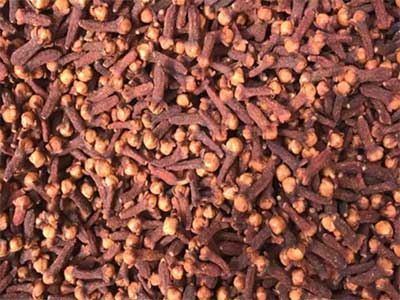Kanyakumari clove gets GI Tag
Tamilnadu's Kanniyakumari clove recently recieved the prestigious Geographical Indication Tag ( GI Tag ) by the Controller General of Patents, Designs and Trade Marks- who is the Registrar of Geographical Indications.
It is known for its unique qualities like high concentration of volatile oil content and aroma.
The Kanniyakumari clove that accounts for nearly 65% of the country’s production got the GI tag thanks to the efforts of the Maramalai Planters and Blackrock Hill Planters Associations since 2019.
Law firm M/S Puthran Associates helped the planter bodies in the GI application process.
It is grown on 760 hectares in the densely wooded areas of Maaraamalai, Blackrock and Velimalai in the Western Ghats of the Veerapuli Reserve Forests and Mahendragiri. The district represents about 73% of the area under clove in Tamil Nadu. Of the total production of 1,100 tonnes of cloves in India, Tamil Nadu accounts for close to 1,000 tonnes, of which over 65% is grown in the district.
Known as the “champion spice”, the evergreen clove tree ( Syzygium aromaticum), related to eucalyptus, is native to the Spice Islands or the Maluku Islands in Indonesia. Clove was introduced in India by the East India Company during the 1800s along the Courtalam high ranges of the erstwhile south Travancore region.
The plant is indigenous to North Molucca Islands of Indonesia. It is also grown in Zanzibar, Madagascar, Malaysia, Sri Lanka and India. The tree prefers well drained rich soil with sufficient soil moisture throughout the year. High atmospheric temperature (25 to 35 degree C) with heavy sun light, good and well-distributed rainfall (above 150 cm) and high humidity (above 70%) are preferred.









